Graduate Program
Welcome to our 2018 Psychology Graduate Student Cohort!
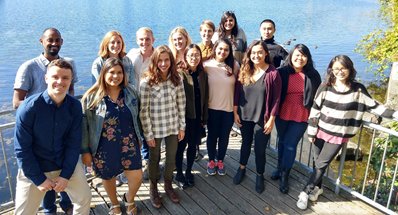 |
| 2018 Graduate Cohort |
In fall we welcomed 15 new PhD students to the Psychology Department at the University of Washington! The new graduate students have a diverse array of interests across many areas of psychology. We welcomed four students to the adult clinical area, two students to the child clinical area, four students to the cognition area, three students to the social and personality area, one student to the developmental & cognition areas, and one student to the developmental & social and personality areas.
Incoming students hail from across the United States including the East Coast (Dartmouth College, Duke University, Fordham University, University of Massachusetts-Amherst, University of Massachusetts-Boston), the Midwest (Ashoka University, University of Wisconsin-Madison), the West Coast (Biola University, California State University-Northridge, Claremont McKenna College, University of California-Santa Cruz, University of Oregon, and the University of Washington), and the world (University of Edinburgh).
Already they are hugely accomplished, with four students who have received University of Washington Top Scholar Awards and four students who received Psychology Department Scholar Awards. Additionally, one student is a GO-MAP McNair fellow, one student is Ford Foundation Fellow, and one student was awarded an NSF Graduate Research Fellowship Program. We are so proud of all of their accomplishments and are excited to see all of the amazing things they will do in the future!
All new students attended a week-long orientation before the start of fall quarter. Two days were devoted to a campus-wide TA/RA orientation, and three days were devoted to the Psychology Department orientation. The Psychology Department’s orientation was organized by 5th year developmental graduate student Elizabeth Enright (Developmental with Jessica Sommerville and Kristina Olson). Students met many members of the psychology department including Jeanny Mai (Graduate Advisor), Cheryl Kaiser (Department Chair), and Kristina Olson (Director of Graduate Training). Students also learned about many resources outside of the Psychology Department including Hall Health, UW Library Resources, and UW Recycling. Some of the biggest hits of orientation included teaching and research panels with current psychology graduate students and faculty members.
Supplemental Reading:
APA Research Award Supports Psycholinguistics
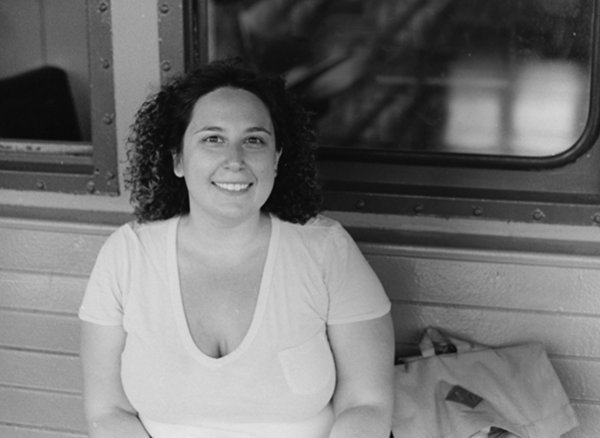 |
| Margarita Zeitlin |
Margarita Zeitlin (Cogition & Perception with Lee Osterhout) received a 2018 American Psychological Association Dissertation Research Award. The Psychology Graduate Program was very excited to hear this news and asked her some questions about how this award will help support her research and studies towards a Ph.D.!
Let's start with the basics, where are you from and where did you complete undergrad/masters?
I grew up in Brooklyn, NY and I stayed in NYC to attend New York University where I completed my B.A. in Linguistics and German.
How did you wind up at UW/why did you apply here? What do you think about living in Seattle?
After I graduated from NYU, I volunteered at a research lab at Hunter College in New York for one year and then moved to Boston, where I spent four years working as a lab manager and research assistant at Harvard University and Tufts University. Having lived my entire life on the East Coast up to that point, I was itching for an opportunity to give the West Coast a try. UW is an absolute intellectual powerhouse in psychology and language research, and I was also attracted by the opportunities in industry available in Seattle, so applying here was a no brainer. As a New Yorker, I often get asked what I think about the “Seattle freeze” and the aggressive passive-aggressiveness, but I don’t know that I feel either of those things very strongly. What I do know is that Seattle feels like a great middle ground between city and community, and there’s something about being able to see nature on the horizon most places you look that lends it all a particular majesty.
What is your research interest and how did you get into it (what inspires/motivates you)?
Over the past 10 years, I’ve studied language comprehension and language learning in children and adults using behavioral methods, eye-tracking, EEG/ERPs, and fMRI. What continues to keep me up at night is how we are able to understand each other so effortlessly. We speak at a rate of about 2-3 words per second, we only get bits of language at a time, and we don’t really know exactly what our conversational partner is going to say, yet we’re able to understand language as quickly as it comes to us. I’m interested in understanding what kind of linguistic information individuals attend to that allows them to speed language comprehension, and whether we can leverage learners’ intrinsic linguistic abilities to promote learning throughout the lifetime.
How did you learn about your funding opportunity and tell us about the application/waiting process?
I heard about the APA Dissertation Research Award from the psych-grads listserv. Applications for this award are nominated by the department and are due at the end of August. Awards are announced by the beginning of November. The short waiting period in combination with the modest application packet definitely make this an award worth applying for.
How did you feel when you learned that your application was accepted and that you will receive funding?
The APA Dissertation Research Award is the first competitive award I’ve received for my research in psycholinguistics. It was incredibly satisfying and encouraging to receive recognition for a proposal I had developed myself, and inspiring that people were excited about the applications of this work.
What is the name of your project and the funding source?
The name of the project is The role of native language comprehension in second-language learning ability. The funding source is the American Psychological Association (APA).
How might your research change the world?
Much of what we learn throughout our lifetimes depends on our ability to extract information from written or spoken language. Academic achievement is particularly contingent on this skill, especially when learning takes place in a second language. However, the way in which we extract information through language is not homogeneous and there are are systematic differences in the type of linguistic information people attend to and learn from. Given that language comprehension is a critical barrier for lifelong learning, the goal of my research is to understand how people vary in the way they process language and in turn, how it affects the way they learn. I hope this project will inform ways in which we can leverage learners’ intrinsic linguistic abilities to promote educational environments that increase learning outcomes.
Do you have any advice/tips/suggestions for others who may apply to this opportunity? About graduate study in general?
As with any grant application, it’s worth understanding what kind of research this award tends to fund. The APA website has a list of winners and their project titles and/or descriptions available to review.
One of the things I’ve learned about graduate study is that while it doesn’t get easier, it just gets harder in different ways. The good news is that this means that you’re learning and becoming more capable of dealing with bigger and different kinds of problems. It’s also important to remember that graduate school is all about training for your career, regardless of what shape it ends up taking. Ensuring that you’re getting the intellectual and skill training you want for your future will help you make the most of your graduate career and will make completing it more fulfilling along the way.
What do you hope to accomplish with the funding and/or while in the UW Psychology graduate program?
The funding I’ve been awarded will help me complete data collection more efficiently and provide me time to receive training in a complimentary EEG method to the one I am primarily using in my project. I hope to conduct this additional analysis on my dissertation data and become a more competitive applicant for comprehensive training in this method in the future.
What do you like doing in your spare time?
What spare time? (I know, oldest joke there is.) When I have the time, I enjoy trying out new recipes in the kitchen, developing film in the bathroom, and growing vegetables in the garden.
The last book and/or movie you saw and enjoyed?
I really love this book called Crap Taxidermy, which is a collection of some of the worst and most hilarious taxidermy there is. There are also instructions on how to do your own mouse stuffing, but I’ve yet to get any BNS students on my side for that craft project.
What do you plan to do once you complete your PhD?
Nap and travel. I’m not sure if I’ll end up pursuing a position in academia or in industry, but I’ve really enjoyed my teaching opportunities and I know I will definitely continue teaching in some capacity when I complete my PhD.
Supplemental Reading:
- More information on the APA Dissertation Research Award can be found online.
- Grants and Funding Information Service (GFIS) through the UW Libraries.
Updates from the Diversity Steering Committee
The Diversity Steering Committee (DSC) has new leadership for the 2018-2019 academic year. Frances Aunon (Adult Clinical Area with Jane Simoni) completed her two-year term as a DSC co-chair last summer and is now back on the team as an active graduate student member. Terrence Pope (Social Psychology & Personality Area with Sapna Cheryan) joined Adriana Germano (Social Psychology & Personality Area with Sapna Cheryan) as DSC co-chair. Together, Adriana and Terrence will share coordination and leadership of DSC’s many initiatives, along with this year’s returning faculty chair, Bill George (Adult Clinical).
This autumn quarter, we welcomed new and future graduate student members by presenting at the Psychology Department's New Student Orientation. New members this year include first year students Noah Triplett (Child Clinical with Shannon Dorsey) and Diana Kwon (Adult Clinical with Ronald Smith)!
At our first meeting of the year, October 23, 2018, we laid the ground work for this upcoming year. Our continuing DSC projects include: Connecting with UW undergraduate students through the second version of our event, “Zoom Out,” coordinating campus-wide Allen L. Edward’s Psychology talks on diversity, and creating a Diversity Climate Training for our department. To facilitate these goals, we’ve formed three subcommittees that met mid-November to begin researching and planning their respective events. You can look forward to hearing updates about these projects as the year progresses!
We also surveyed students in the department about starting a department-wide ‘Tea time’ to take place on a rotating basis. The responses were overwhelmingly positive so look out for more details on that in the future as well!
The DSC looks forward to supporting graduate students in exploring diversity science in their coursework, research, teaching, and other domains of engagement within and outside the UW. Please contact us at psychdsc@uw.edu for more information or to ask how you can be a part of one of our upcoming projects!
Supplemental Reading:
Graduate Accomplishments
Spring 2018
Eric Gomez (Social Psychology & Personality with Cheryl Kaiser), Krystal Parrish (Child Clinical with Liliana Lengua), Bryan Schuessler (Behavioral Neuroscience with Jeansok Kim), and Peter Zambetti (Behavioral Neuroscience with Jeansok Kim) completed a master's degree during spring quarter.
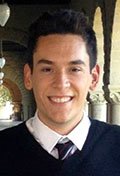 |
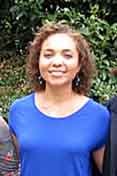 |
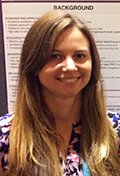 |
| Eric Gomez | Krystal Parrish | Rosie Walker |
Rosie Walker (Adult Clinical with Lori Zoellner), Margarita Zeitlin (Cognition & Perception with Lee Osterhout), and Julie Harrison (Child Clinical with Shannon Dorsey) passed their general exams and have advanced to candidacy.
Katy Fladeboe (Developmental Area with Lynn Fainsilber Katz) is the 23rd student to complete the Quantitative Minor, which you can learn about here. It is an optional plan of study available to currently enrolled psychology graduate students.
Lily Durwood (Child Clinical with Kristina Olson & Kate McLaughlin) was awarded an NSF fellowship and we asked her a few questions about the process and her research which can be read in our previous issue if you haven't had a chance to check it out.
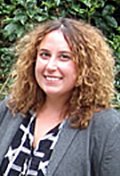 |
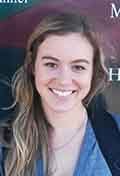 |
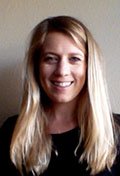 |
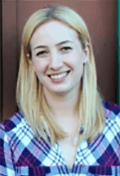 |
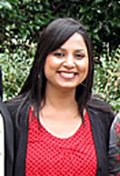 |
| Margarita Zeitlin | Julie Harrison | Katy Fladeboe | Lily Durwood | Prerna Martin |
Prerna Martin (Child Clinical with Shannon Dorsey) was selected as a Doris Duke Fellow for her research with reducing child maltreatment in resource-constrainted settings. She was previously featured for her Graduate School Top Scholar-supported research on child mental health in New Delhi slums.
Kelly Chang (Cognition & Perception with Geoff Boynton) and Margarita Zeitlin (Cognition & Perception with Lee Osterhout) were finalists for the campus-wide Excellence in Teaching Award. They, along with the other nominees, were honored at a celebration at the end of May.
Laina Keim (Child Clinical with Lynn Fainsilber Katz)’s poster, titled Meta-Emotion Philosophy Predicts Caregiver Strain and Physical Health in Parents of Children with Cancer, was featured at the 2018 Society of Pediatric Psychology Annual Conference and received the Exemplary Methods and Statistics Poster Award.
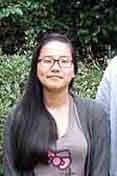 |
 |
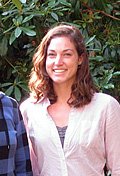 |
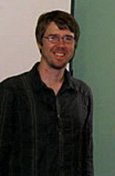 |
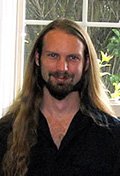 |
| Kelly Chang | Laini Keim | Kelsey McCune | Adrian Andelin | Jason Webster |
We had a busy schedule of defenses in spring, with six students defending and graduating: Adrian Andelin (Behavioral Neuroscience with Jaime Olavarria), Kelsey McCune (Animal Behavior with Renee Ha), Vasundhara Sridharan (Social Psychology & Personality with Yuichi Shoda), Jason Webster (Cogntion & Perception with Ione Fine), Carol Xu (Animal Behavior with Renee Ha), and Brianna Yamasaki (Cognition & Perception with Chantel Prat). Our recent graduates can be found instructing courses at the UW and North Seattle Community College, to a post-doctoral postion at Vanderbilt University, and a User Researcher at a medical research company. Congratulations!
Summer 2018
Ari Eason (Social/Developmental with Jessica Sommerville & Cheryl Kaiser) was interviewed in Arts & Sciences Perspectives. She was previously featured for her experience in our program while being supported by a Ford Foundation Fellowship and while on NSF funding.
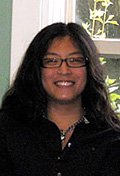 |
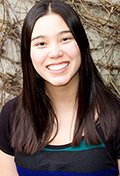 |
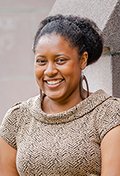 |
 |
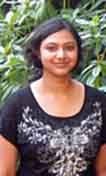 |
| Carol Xu | Brianna Yamasaki | Ari Eason | Linda Zou | Vasundhara Sridharan |
Linda Zou (Social Psychology & Personality with Sapna Cheryan) was selected as a GO-MAP Fellow for their dissertation year award of two quarters of academic support! She was previously interviewed for her NSF-supported research which can be found here.
Dominic Sivilitti (Behavioral Neuroscience with David Gire) was featured in the San Juan Times for his research on the octopus. Dominic had previously also written up his first-hand and close-up experience with an octopus last summer which can be read here.
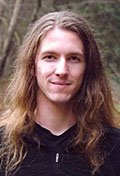 |
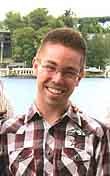 |
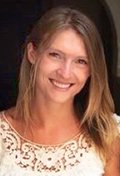 |
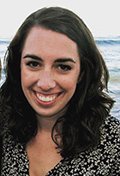 |
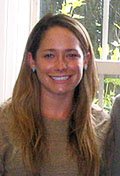 |
| Dominic Sivitilli | Trevor Coyle | Haley Carroll | Annie Fast | Colleen Harker |
Trevor Coyle (Adult Clinical with Lori Zoellner) passed his general exam and advanced to candidacy, while we had 9 students defend and graduate: Haley Carroll (Adult Clinical with Mary Larimer), Ari Eason (Social/Developmental with Jessica Sommerville & Cheryl Kaiser), Annie Fast (Developmental with Kristina Olson), Colleen Harker (Child Clinical with Wendy Stone), Charlotte Heleniak (Child Clinical with Kate McLaughlin), Libby Marks (Adult Clinical with Lori Zoellner), Lindsey Nietmann (Animal Behavior with Renee Ha), Alicia Shen (Social Psychology & Personality with Yuichi Shoda), and Chelsey Wilks (Adult Clinical with Marsha Linehan).
Autumn 2018
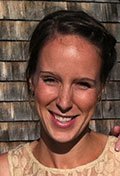 |
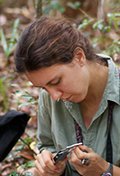 |
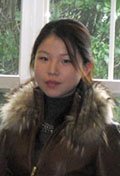 |
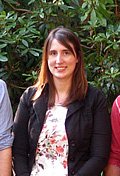 |
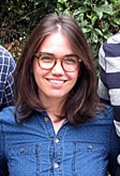 |
| Libby Marks | Lindsey Nietmann | Alicia Shen | Chelsea Wilks | Adriana Germano |
Kelly Chang (Cognition & Perception with Geoff Boynton), Adriana Germano (Social Psychology & Personality with Sapna Cheryan), Eric Gomez (Social Psychology & Personality with Cheryl Kaiser), Suzanne Lewis (Behavioral Neuroscience with David Gire), Patrick Rice (Cognition & Perception with Andrea Stocco), Tristram Savage-Pinte (Cognition & Perception with Ione Fine), and Dominic Sivilitti (Behavioral Neuroscience with David Gire) all completed the generals process to advance to doctoral candidate status for autumn!
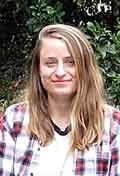 |
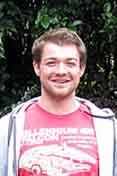 |
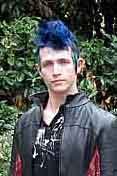 |
| Suzanne Lewis | Patrick Rice | Tristram Savage-Pinte |
Margarita Zeitlin (Cognition & Perception with Lee Osterhout) received an APA Dissertation Research Award. You can read all about it here.
We will have a lot more accomplishments to share in our summer issue, until then have a wonderful new year!